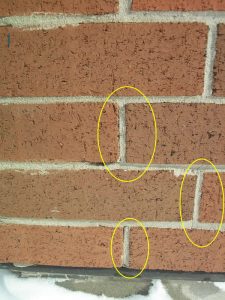The raw materials of masonry mortar mainly are cementitious materials, aggregates, admixtures and additives.
- Cementitious Materials
Cement is the main cementitious material of masonry mortar. Currently the most commonly used are ordinary Portland cement, slag cement and etc., but slag cement is easy for bleeding, it should be kept in mind during use. Since mortar has not very high requirements for the strength grade, in order to save materials and use resources rationally, we should try to select low-strength-grade cement and masonry cement in the preparation of masonry mortar. For cement mortar, the strength grade of cement should not be greater than Grade 32.5; for cement-mixed mortar, due to the addition of lime putty and other admixtures, the strength grade of cement can be appropriately increased, but should not be greater than Grade 42.5. If mortar is of industrialized production, then it is recommended to use #4.25 cement, and then mix with fly ash and other admixture, preparing mortar of various strength grades.
- Fine Aggregates
For the sand used in masonry mortar, it is appropriate to select medium-sized sand, sieved and without containing grass roots or other sundries. Since the mortar prepared with medium-sized sand can both meet the requirements of workability and save cement, priority should be given to this choice.
The silt content in sand has a certain effect on its properties. If the silt content is too large, it will not only increase the amount of cement, but also increase the mortar contraction, reduce the bond strength and affect the masonry quality. Therefore, in order to ensure the mortar quality, there should be restrictions on the silt content in sand. For the cement mortar and cement composite mortar with the strength grade no less than M5, the silt content in sand should not exceed 5%; while for the cement composite mortar with the strength grade less than M5, the silt content in sand should not exceed 10%.
Natural sand is non-renewable resource. With its increasing scarcity, researches and applications of manufactured mortar have been increasing. The content of aggregate micro fines (AMF) in manufactured sand is relatively high, which can improve the workability of mortar, but will decrease the strength somewhat. When manufactured mortar is used, restrictions on the silt content can be appropriately relaxed, but since its particle shapes and surface conditions are different from those of natural sand, it should be adjusted in the design of mix proportion.
Masonry mortar can also adopt light weight aggregates, such as expanded perlite and crushed polystyrene particles, to produce thermal insulation masonry mortar and reduce the heat bridge effects of mortar joints.
- Admixtures
Admixtures are inorganic materials added to improve the workability of mortar, such as lime putty, clay puddle, calcium carbide sludge, finely ground quicklime powder, fly ash and zeolite powder. In order to ensure the quality of mortar, quick lime should slake into the lime paste before use. When quick lime in lumps slakes into the lime paste, the mesh with a pore size not greater than 3mm X 3mm should be adopted for filtering, and the curing time shall not be less than 7d; the curing time shall not be less than 2d in order to ensure that lime can be fully slaked. To ensure the quality of lime paste, measures should be taken to prevent drying, freezing and pollution, etc. Do not use the dehydrated hardened lime, as it not only has no plasticizing effect, but also affects the mortar strength. In addition, hydrated lime powder should not be directly used in masonry mortar, as it is insufficiently slaked lime, coarser in particle, and plays no roles in improving the workability of mortar.
The addition of fly ash into mortar can improve its workability, enhance the durability and can also reduce the cost. According to the levels of mortar strength, fly ash of grade Ⅰ or Ⅱ is selected.
The addition of zeolite powder into mortar can improve its workability, operability, improve the water retention, increase the mortar strength and save cement. According to the levels of mortar strength, zeolite powder of grade Ⅰ or Ⅱ is selected.
- Additives
In order to improve the workability of cement mortar, water-retaining thickening materials(Hydroxypropyl Methyl Cellulose, Re-dispersible powder) and organic plasticizers are often added into masonry mortar. The organic plasticizer plays an air-entraining role and has a certain effect on the mechanical properties of masonry. Its failure load of masonry is lower than that of cement-lime composite mortar, thus requiring it to have the type inspection report on the masonry mortar of its products issued by statutory testing institutions.

